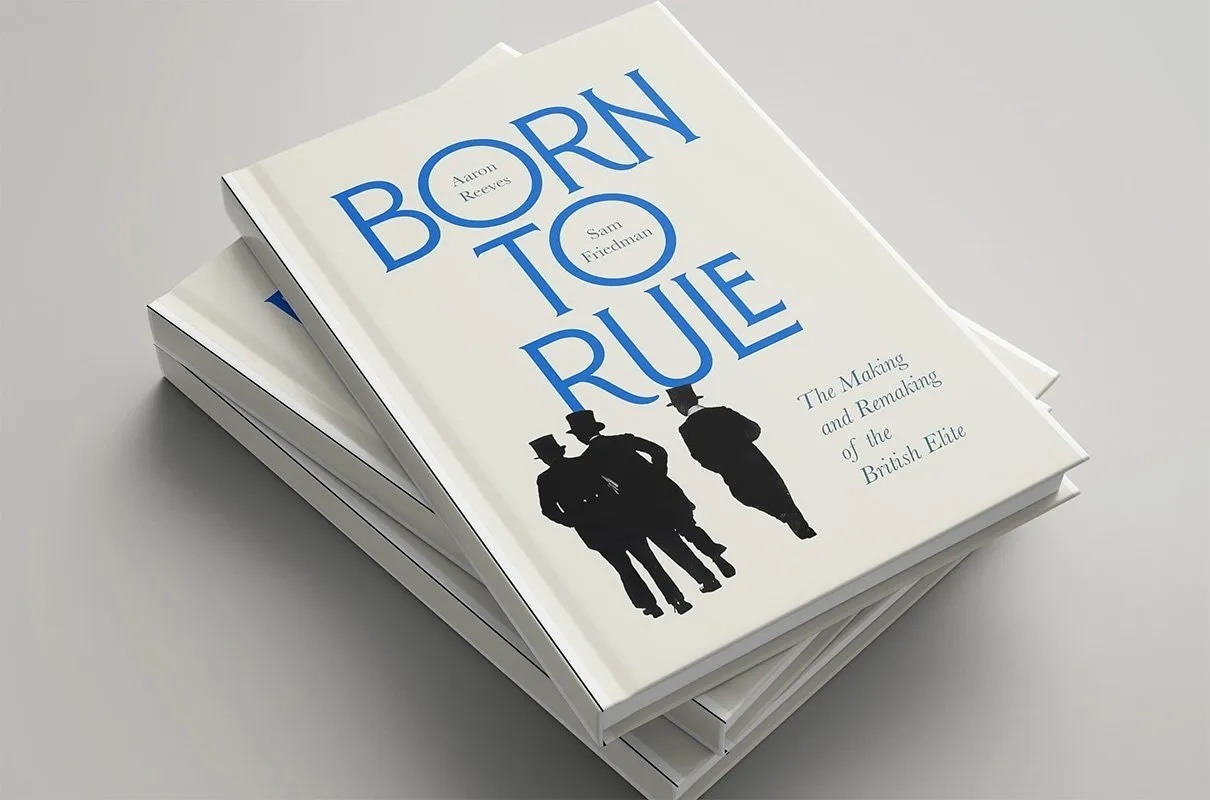We're always hearing about the "elite", but what does the data tell us about who runs Britain?

Born to Rule: The Making and Remaking of the British Elite (Harvard University Press) by Aaron Reeves and Sam Friedman
Who really runs Britain? It’s the question hiding in plain sight, always in the background when politics, culture or business are discussed. Who are the real decision-makers, the behind-the-scenes influencers, the ones pulling the strings, generation after generation?
The left likes to call them “the establishment”. Over the past few years, the right has grown fond of complaining about “metropolitan liberal elites”. Still, there is one thing they never quite do, and it is to define this shadowy, seemingly all-powerful group. Who counts and who doesn’t?
Academics Aaron Reeves and Sam Friedman believe they have finally arrived at an answer. In Born to Rule: The Making and Remaking of the British Elite, the two sociology professors sought to define the “elites”, tracking their evolution over the past 125 years and attempting to find out what and how they think.
In order to delineate those elites, the writers turned to Who’s Who – a collection of notable people once seen as so important that Winston Churchill personally intervened during the Second World War to ensure that its publication wasn’t impacted by paper shortages. The directory has included around 125,000 people since 1897, and the current edition has 33,000 entries. From these, Reeves and Friedman identified roughly 6,000 people who also belong to the top 1 per cent when it comes to national wealth distribution. These people, they argue, essentially rule Britain.
The next question is: who are they? Perhaps disappointingly, pretty much who you’d expect. In the chapter looking at ancestry, they conclude that this elite within the elite can trace its history back through the generations. People who featured in Who’s Who at the beginning of the 20th century were 120 times more likely to have descendants with an entry in the directory.
This inherited wealth and influence has everything to do with education and upbringing. Someone born in 1977 who attended a Clarendon school – including Eton and Charterhouse – is just under 50 times more likely to be in Who’s Who than someone educated elsewhere. Similarly, a British person born in the 60s or 70s who went to the universities of Oxford or Cambridge was over 250 times more likely to enter this prestigious elite than someone who didn’t go to university – and so on, and so forth.
This matters because, as Reeves and Friedman find when they turn to more qualitative research, these people think differently from the rest of the country. Though 40 per cent of the population at large believes that healthcare spending should be the government’s top priority, a paltry 20 per cent of the “wealth elite” think the same. Meanwhile, only 46 per cent of that group want taxes increased for the rich, compared to 80 per cent of everyone else.
More broadly, this elite within the elite tends to lean towards an ideology the authors describe as the “establishment right”, which is significant as these people have the means, both literally and figuratively, to influence what happens in politics. ‘Twas ever thus, you might say, and it’s tempting to disregard this book as an exercise in stating the obvious. Still, seeing the data drawn together does have a powerful impact, and the increased public knowledge of Britain’s dynastic power structures makes the slow pace of change feel especially frustrating.
Of course, that doesn’t mean the elite has stagnated over the past century. For a start, it is getting slowly but steadily less male and stale. There’s also been a significant change in how they see themselves. “I’ve never considered myself to be one of the elite,” said one of the interviewees, despite being clearly of their ranks, while another complained that they were not “in any way whatsoever … in a position of influence in British society.” Reeves and Friedman posit that increased wealth inequality in recent years has, consciously or unconsciously, resulted in these people downplaying their own power.
The authors believe that said inequality must be tackled by targeting, among other things, private schools, elite universities and tax systems. Otherwise we will “be consigned to the pernicious cosplay of an elite masquerading as common people”. Or, in other words: better read this book and know thine enemy, so we can finally bring them down.

